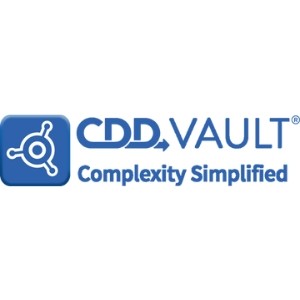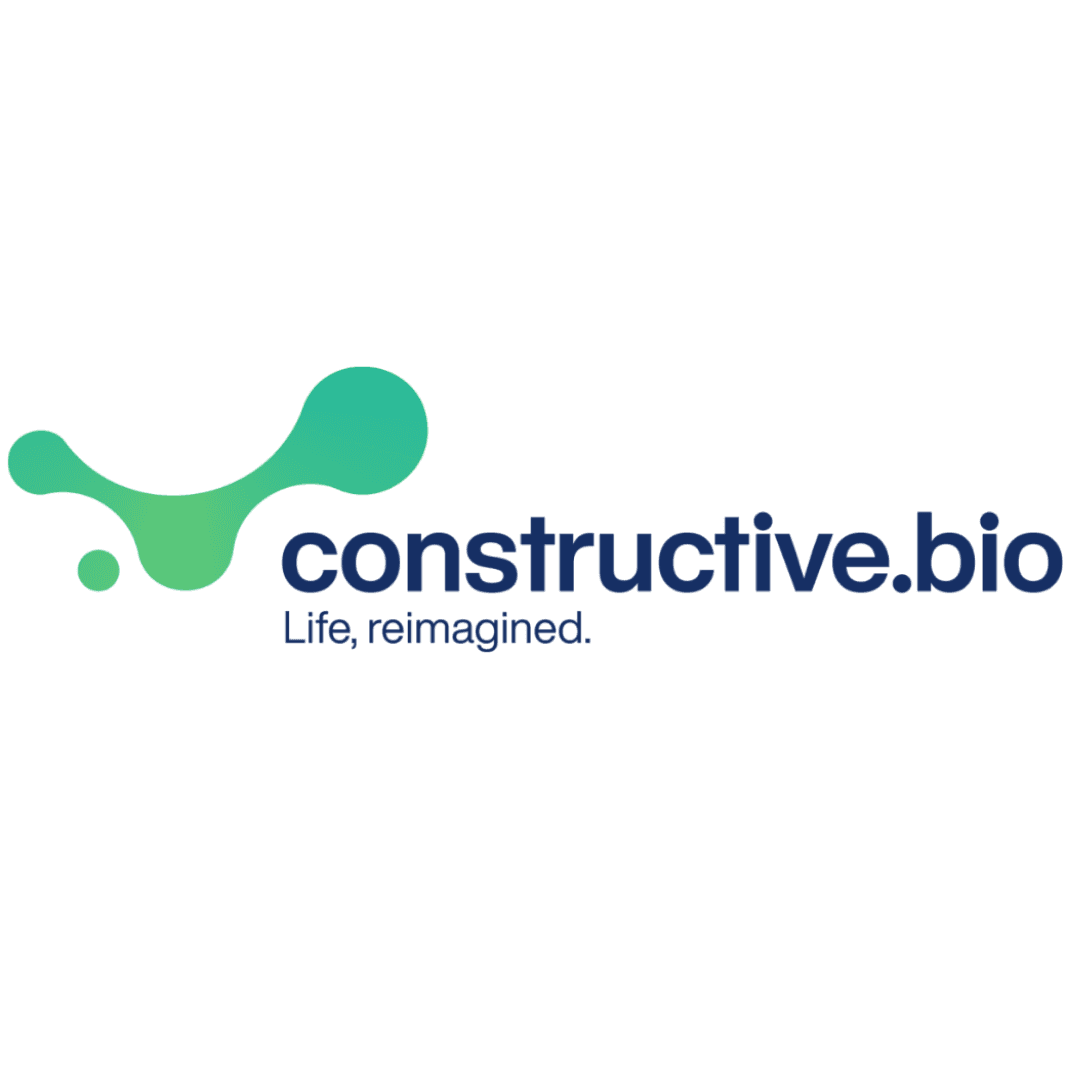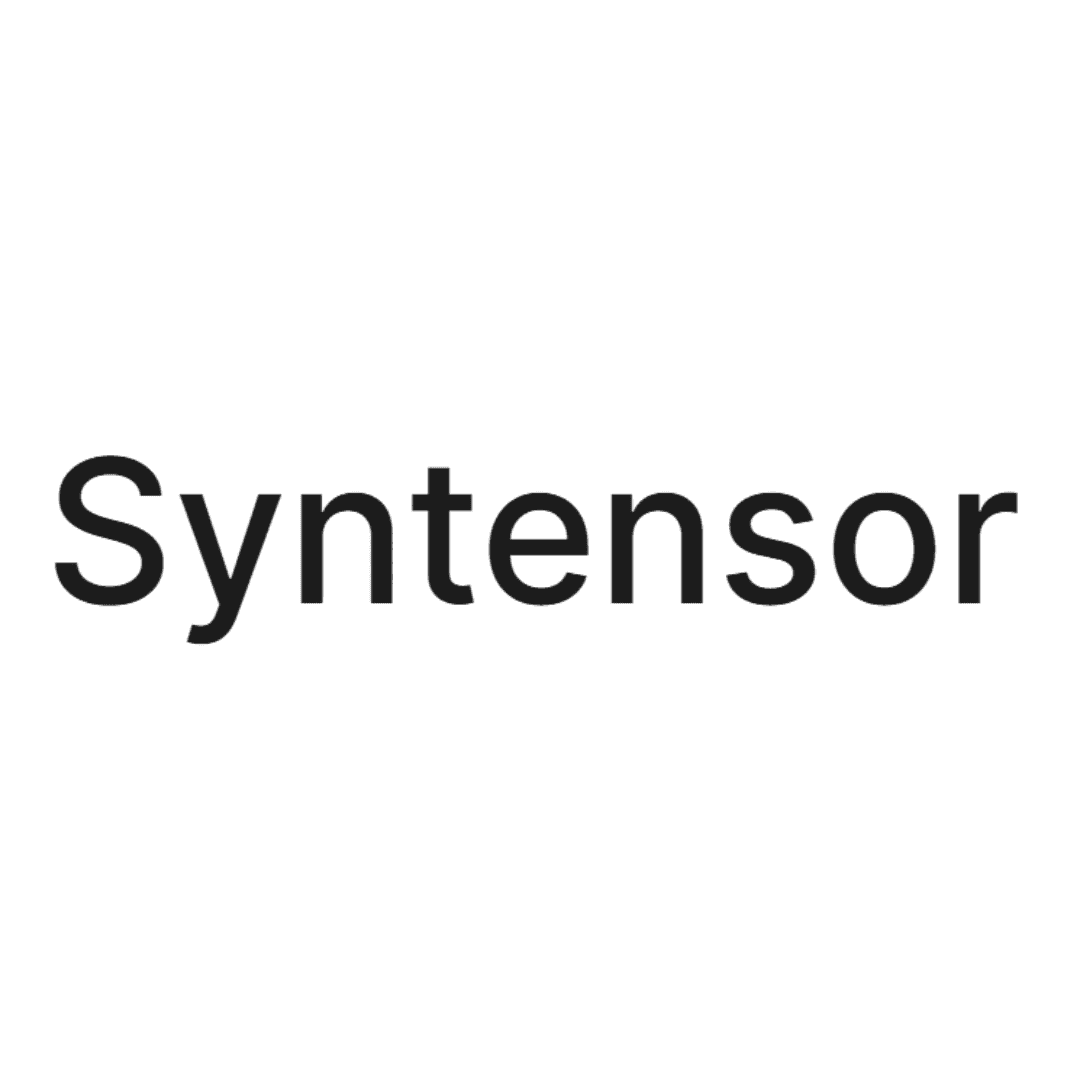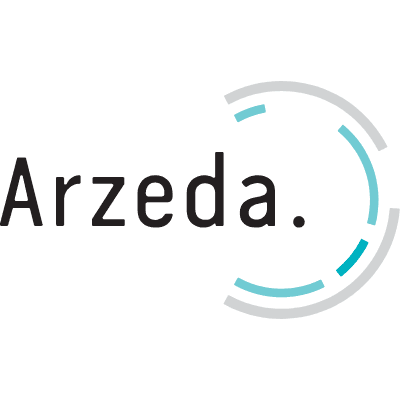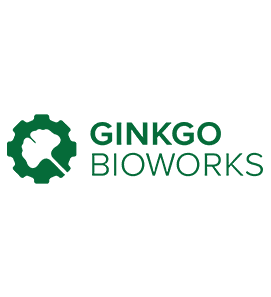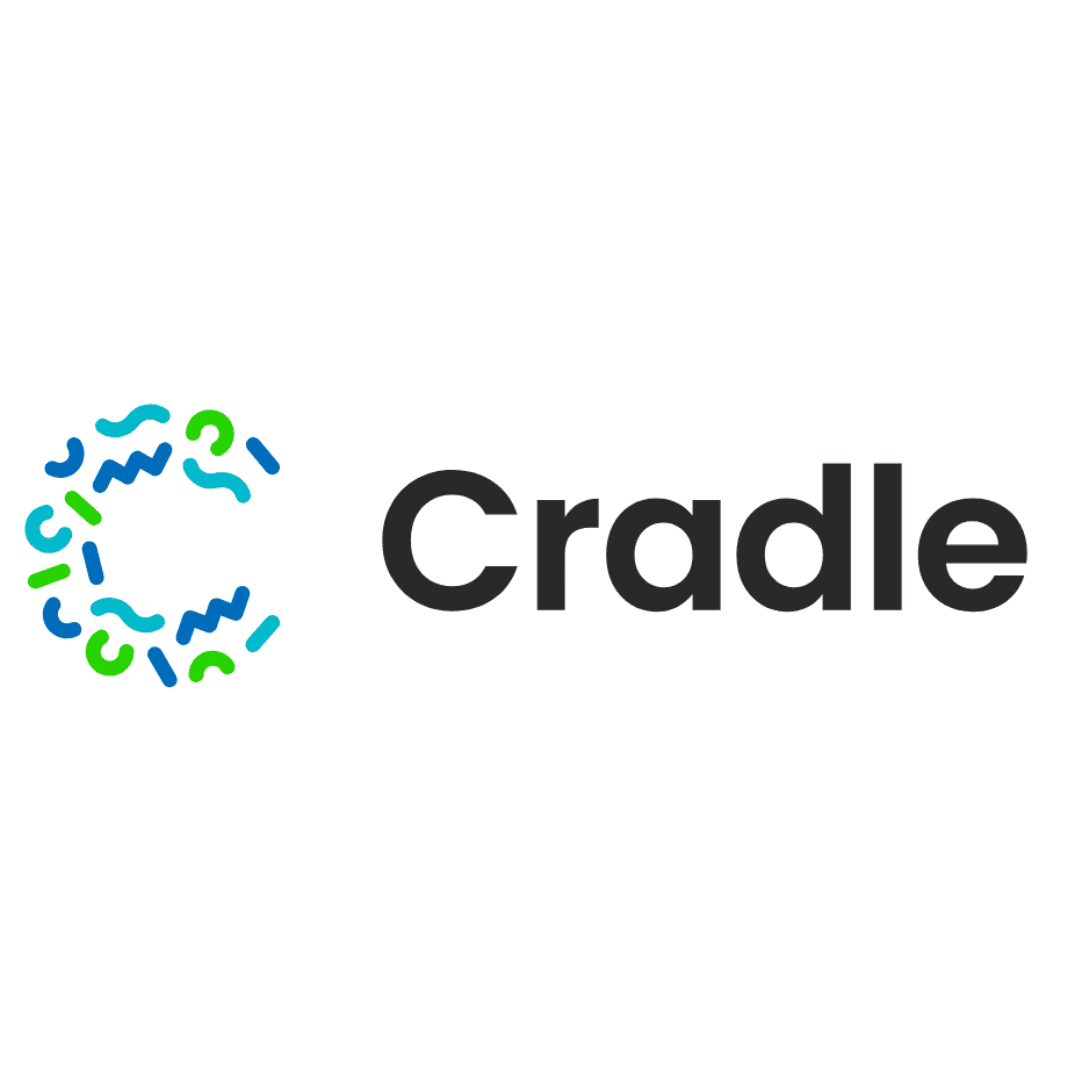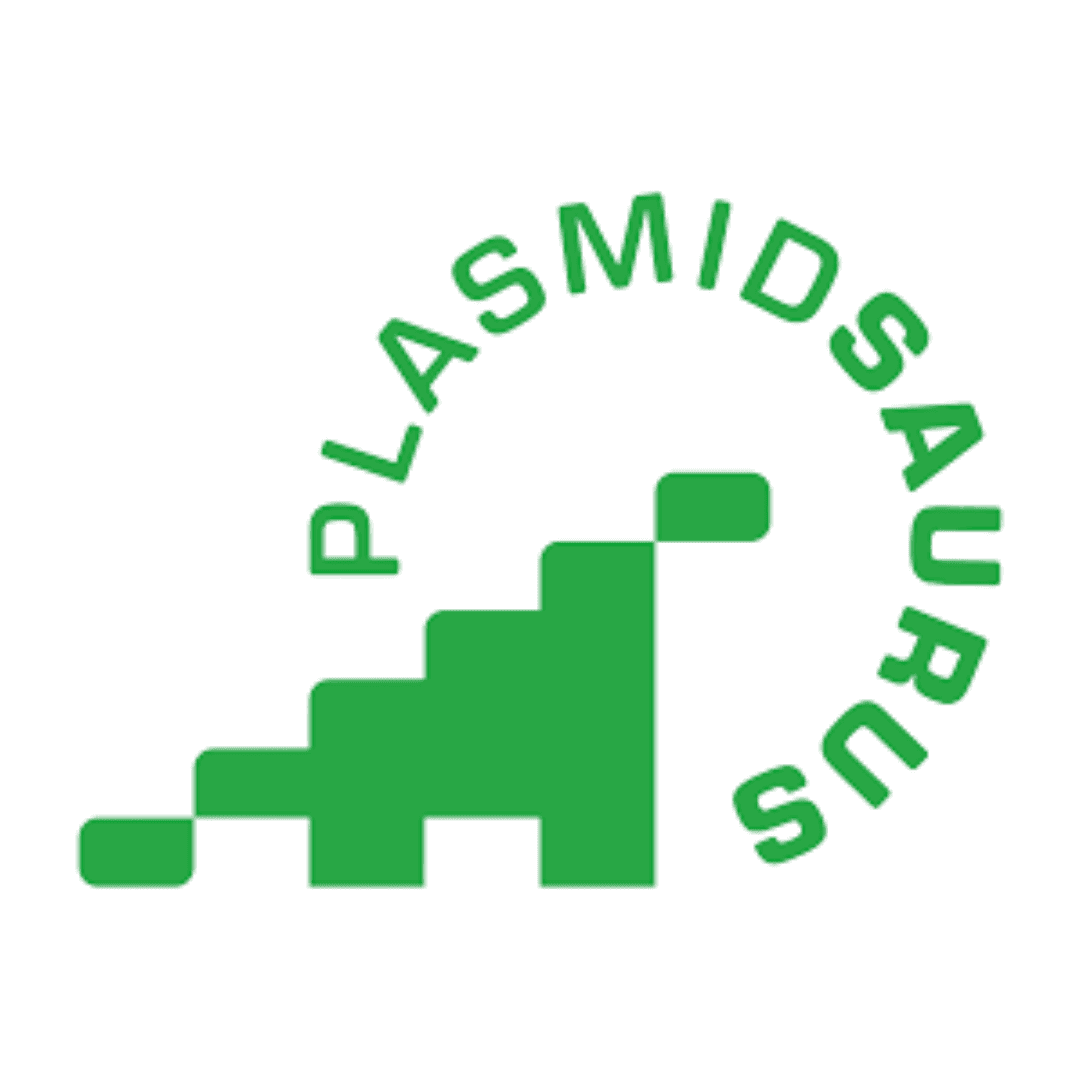AIxBIO at SynBioBeta 2026
Using AI to Make Biology Programmable
May 4-7
2026
San Jose Convention Center
California, USA
May 4-7
2026
San Jose Convention Center
California, USA



Biology and AI are converging to unlock entirely new frontiers. By bridging these worlds, researchers and innovators are building a shared toolkit spanning human health, food, materials, and planetary sustainability.
AIxBIO at SynBioBeta 2026 explores how foundation models and machine learning are being applied across DNA, RNA, metabolites, proteins, cells, and ecosystems. From multimodal models that link sequence to function, to simulations that capture biological dynamics over time, these approaches are laying the groundwork for a more predictive and programmable biology. This is where the foundations for the next generation of programmable biology are being built.
Why AIxBIO Matters
Biology is complex. Static snapshots can’t capture living systems that change across time and scale.
Data is limited. AI is constrained by incomplete and noisy biological datasets.
Translation is hard. Predictions often break down moving from lab to real-world systems.
Intelligence is needed. From adaptive therapeutics to sustainable materials, biology requires models that can learn, adapt, and scale.
Who you'll meet
AIxBIO brings together the full ecosystem driving the future of AI and biology:
Innovators building the tools, models, and datasets that make biology programmable.
Industry leaders applying AI breakthroughs across medicines, food, materials, and sustainability.
Biologists, engineers, and investors converging to scale programmable biology for both human and planetary health.
What to expect
AIxBIO is more than talks - bring your laptop for hands-on demos and workshops with the latest models.
Insights into how AI is transforming biology, from drug discovery to sustainable manufacturing.
Discuss best practices and tricks with AI power users.
Interact with AIxBIO pioneers from NVIDIA, Boltz, Cradle, Evo2, Noetik, Xaira, Alfafold, and more.
The future of biology is programmable — powered by AI, shaped by collaboration.
Confirmed Speakers
Sessions Will Include
Sessions Will Include
1
May 6, 2026
Programmable Molecules: AI and the Rise of Context-Aware Therapeutics
For the first time, AI is enabling us to imagine medicines that “think” — turning on only inside diseased cells or under specific physiological conditions. This session explores how neural networks, trained on RNA and protein data, are unlocking programmable therapies with unprecedented precision. Imagine cancer drugs that remain inert until they meet tumor markers, or RNA vaccines that adapt to evolving viral landscapes in real time. The future of medicine isn’t static molecules — it’s intelligent, adaptive therapeutics
[…]
1
May 6, 2026
Programmable Molecules: AI and the Rise of Context-Aware Therapeutics
For the first time, AI is enabling us to imagine medicines that “think” — turning on only inside diseased cells or under specific physiological conditions. This session explores how neural networks, trained on RNA and protein data, are unlocking programmable therapies with unprecedented precision. Imagine cancer drugs that remain inert until they meet tumor markers, or RNA vaccines that adapt to evolving viral landscapes in real time. The future of medicine isn’t static molecules — it’s intelligent, adaptive therapeutics
[…]
1
May 6, 2026
Programmable Molecules: AI and the Rise of Context-Aware Therapeutics
For the first time, AI is enabling us to imagine medicines that “think” — turning on only inside diseased cells or under specific physiological conditions. This session explores how neural networks, trained on RNA and protein data, are unlocking programmable therapies with unprecedented precision. Imagine cancer drugs that remain inert until they meet tumor markers, or RNA vaccines that adapt to evolving viral landscapes in real time. The future of medicine isn’t static molecules — it’s intelligent, adaptive therapeutics
[…]
2
May 5, 2026
AIxBIO Masterclass - Boltz
Join Boltz co-founder Gabriele Corso for an interactive, hands-on masterclass exploring how next-generation AI models are transforming molecular design, protein engineering, and therapeutic development. In this live workshop, attendees will step inside the Boltz platform to learn how structure-based generative modeling pipelines can be applied to real-world design challenges. Participants will see how AI-driven predictions are reshaping the drug discovery workflow — from identifying high-value molecular hits to optimizing binders, and therapeutic candidates. This session is designed for scientists, founders, and R&D leaders looking to understand how to actually use cutting-edge AI to accelerate biological innovation.
[…]
2
May 5, 2026
AIxBIO Masterclass - Boltz
Join Boltz co-founder Gabriele Corso for an interactive, hands-on masterclass exploring how next-generation AI models are transforming molecular design, protein engineering, and therapeutic development. In this live workshop, attendees will step inside the Boltz platform to learn how structure-based generative modeling pipelines can be applied to real-world design challenges. Participants will see how AI-driven predictions are reshaping the drug discovery workflow — from identifying high-value molecular hits to optimizing binders, and therapeutic candidates. This session is designed for scientists, founders, and R&D leaders looking to understand how to actually use cutting-edge AI to accelerate biological innovation.
[…]
2
May 5, 2026
AIxBIO Masterclass - Boltz
Join Boltz co-founder Gabriele Corso for an interactive, hands-on masterclass exploring how next-generation AI models are transforming molecular design, protein engineering, and therapeutic development. In this live workshop, attendees will step inside the Boltz platform to learn how structure-based generative modeling pipelines can be applied to real-world design challenges. Participants will see how AI-driven predictions are reshaping the drug discovery workflow — from identifying high-value molecular hits to optimizing binders, and therapeutic candidates. This session is designed for scientists, founders, and R&D leaders looking to understand how to actually use cutting-edge AI to accelerate biological innovation.
[…]
3
May 6, 2026
Data Factories: Building the Infrastructure for AI-Ready Biology
Biology is entering an AI-driven era, but most experimental infrastructure still produces data designed for individual experiments, not for learning at scale. As a result, much of today’s data is useful in the moment but poorly suited for training robust, long-lived models. This session will explore what biological data matters most today, what data needs to be generated now to support future models, and how leading teams are closing that gap. Panelists will discuss how automation, metadata discipline, and standardized testing pipelines can turn artisanal lab workflows into continuous experiment-to-learning systems. The focus will be on infrastructure and experimental design, highlighting practical bottlenecks, emerging best practices, and what becomes possible when biology produces abundant, high-quality, model-ready data by default.
[…]
3
May 6, 2026
Data Factories: Building the Infrastructure for AI-Ready Biology
Biology is entering an AI-driven era, but most experimental infrastructure still produces data designed for individual experiments, not for learning at scale. As a result, much of today’s data is useful in the moment but poorly suited for training robust, long-lived models. This session will explore what biological data matters most today, what data needs to be generated now to support future models, and how leading teams are closing that gap. Panelists will discuss how automation, metadata discipline, and standardized testing pipelines can turn artisanal lab workflows into continuous experiment-to-learning systems. The focus will be on infrastructure and experimental design, highlighting practical bottlenecks, emerging best practices, and what becomes possible when biology produces abundant, high-quality, model-ready data by default.
[…]
3
May 6, 2026
Data Factories: Building the Infrastructure for AI-Ready Biology
Biology is entering an AI-driven era, but most experimental infrastructure still produces data designed for individual experiments, not for learning at scale. As a result, much of today’s data is useful in the moment but poorly suited for training robust, long-lived models. This session will explore what biological data matters most today, what data needs to be generated now to support future models, and how leading teams are closing that gap. Panelists will discuss how automation, metadata discipline, and standardized testing pipelines can turn artisanal lab workflows into continuous experiment-to-learning systems. The focus will be on infrastructure and experimental design, highlighting practical bottlenecks, emerging best practices, and what becomes possible when biology produces abundant, high-quality, model-ready data by default.
[…]
4
May 6, 2026
Biology in Silico: Multi-Agent Simulations of Life
From tissues morphing in development to microbes competing in a bioreactor, biology is inherently emergent. Multi-agent simulations — from platforms like BioDynaMo, CompuCell3D, and BIO-LGCA — are now powerful enough to model billions of interacting agents, capturing diffusion, metabolism, migration, and signaling with physical fidelity. Synthetic biologists are using these frameworks to probe design limits before moving to the lab, asking questions like: How far can diffusion alone carry a signaling molecule? What metabolic bottlenecks emerge in crowded cells? And how do engineered traits play out at population scale? This session will spotlight how agent-based models are becoming essential design environments for synthetic biology, helping teams test hypotheses virtually, anticipate failure modes, and translate biology into an engineering discipline rooted in predictive, quantitative simulation.
[…]
4
May 6, 2026
Biology in Silico: Multi-Agent Simulations of Life
From tissues morphing in development to microbes competing in a bioreactor, biology is inherently emergent. Multi-agent simulations — from platforms like BioDynaMo, CompuCell3D, and BIO-LGCA — are now powerful enough to model billions of interacting agents, capturing diffusion, metabolism, migration, and signaling with physical fidelity. Synthetic biologists are using these frameworks to probe design limits before moving to the lab, asking questions like: How far can diffusion alone carry a signaling molecule? What metabolic bottlenecks emerge in crowded cells? And how do engineered traits play out at population scale? This session will spotlight how agent-based models are becoming essential design environments for synthetic biology, helping teams test hypotheses virtually, anticipate failure modes, and translate biology into an engineering discipline rooted in predictive, quantitative simulation.
[…]
4
May 6, 2026
Biology in Silico: Multi-Agent Simulations of Life
From tissues morphing in development to microbes competing in a bioreactor, biology is inherently emergent. Multi-agent simulations — from platforms like BioDynaMo, CompuCell3D, and BIO-LGCA — are now powerful enough to model billions of interacting agents, capturing diffusion, metabolism, migration, and signaling with physical fidelity. Synthetic biologists are using these frameworks to probe design limits before moving to the lab, asking questions like: How far can diffusion alone carry a signaling molecule? What metabolic bottlenecks emerge in crowded cells? And how do engineered traits play out at population scale? This session will spotlight how agent-based models are becoming essential design environments for synthetic biology, helping teams test hypotheses virtually, anticipate failure modes, and translate biology into an engineering discipline rooted in predictive, quantitative simulation.
[…]
5
May 5, 2026
The Data Reality Check: Human-First Biology for AI Models
Why do so many in silico models fail when moved to the lab or clinic? Too often, they’re trained on incomplete, non-human, or non-representative datasets. This session tackles the “data gap” head-on: from interoperability bottlenecks and the black box problem to the limits of current virtual cell simulations (~50 million perturbations vs. the billions biology demands). Panelists will explore how to create “human-first” datasets that reflect real biology, unlock mechanistic interoperability, and close the discovery–development divide. The goal: build AI tools that can directly identify viable drug candidates instead of stalling in silico.
[…]
5
May 5, 2026
The Data Reality Check: Human-First Biology for AI Models
Why do so many in silico models fail when moved to the lab or clinic? Too often, they’re trained on incomplete, non-human, or non-representative datasets. This session tackles the “data gap” head-on: from interoperability bottlenecks and the black box problem to the limits of current virtual cell simulations (~50 million perturbations vs. the billions biology demands). Panelists will explore how to create “human-first” datasets that reflect real biology, unlock mechanistic interoperability, and close the discovery–development divide. The goal: build AI tools that can directly identify viable drug candidates instead of stalling in silico.
[…]
5
May 5, 2026
The Data Reality Check: Human-First Biology for AI Models
Why do so many in silico models fail when moved to the lab or clinic? Too often, they’re trained on incomplete, non-human, or non-representative datasets. This session tackles the “data gap” head-on: from interoperability bottlenecks and the black box problem to the limits of current virtual cell simulations (~50 million perturbations vs. the billions biology demands). Panelists will explore how to create “human-first” datasets that reflect real biology, unlock mechanistic interoperability, and close the discovery–development divide. The goal: build AI tools that can directly identify viable drug candidates instead of stalling in silico.
[…]
6
May 5, 2026
Beyond Static Predictions — AI for Protein Dynamics and Multi-Cell Models
The next frontier of biology isn’t in predicting a single static protein structure, but in capturing how proteins move, fold, and interact across time and environments. This session explores how AI can illuminate protein conformations and dynamics, and extend those insights into virtual multi-cellular or tissue models. Experts will discuss the challenge of integrating heterogeneous datasets and instruments, and how breakthroughs in dynamic modeling could reshape drug design, disease understanding, and biomanufacturing. Can we build models that reflect the living, breathing complexity of biology—not just snapshots, but motion?
[…]
6
May 5, 2026
Beyond Static Predictions — AI for Protein Dynamics and Multi-Cell Models
The next frontier of biology isn’t in predicting a single static protein structure, but in capturing how proteins move, fold, and interact across time and environments. This session explores how AI can illuminate protein conformations and dynamics, and extend those insights into virtual multi-cellular or tissue models. Experts will discuss the challenge of integrating heterogeneous datasets and instruments, and how breakthroughs in dynamic modeling could reshape drug design, disease understanding, and biomanufacturing. Can we build models that reflect the living, breathing complexity of biology—not just snapshots, but motion?
[…]
6
May 5, 2026
Beyond Static Predictions — AI for Protein Dynamics and Multi-Cell Models
The next frontier of biology isn’t in predicting a single static protein structure, but in capturing how proteins move, fold, and interact across time and environments. This session explores how AI can illuminate protein conformations and dynamics, and extend those insights into virtual multi-cellular or tissue models. Experts will discuss the challenge of integrating heterogeneous datasets and instruments, and how breakthroughs in dynamic modeling could reshape drug design, disease understanding, and biomanufacturing. Can we build models that reflect the living, breathing complexity of biology—not just snapshots, but motion?
[…]
7
May 5, 2026
From Cells to Patients: Solving the Scale Mismatch in Virtual Biology
Drug discovery often measures biology at the cell level while interventions work at the tissue, organ, or whole-patient scale. This mismatch can make accurate cell-level predictions irrelevant in the clinic. This session dives into strategies to bridge that gap: multiscale modeling that nests single-cell dynamics within organ-level simulations, spatial transcriptomics that preserve context, and surrogate models that translate cell-level outputs into clinical biomarkers. Speakers will ask: how do we ensure virtual biology reflects not just what cells do in isolation, but how biology behaves in the real complexity of patients?
[…]
7
May 5, 2026
From Cells to Patients: Solving the Scale Mismatch in Virtual Biology
Drug discovery often measures biology at the cell level while interventions work at the tissue, organ, or whole-patient scale. This mismatch can make accurate cell-level predictions irrelevant in the clinic. This session dives into strategies to bridge that gap: multiscale modeling that nests single-cell dynamics within organ-level simulations, spatial transcriptomics that preserve context, and surrogate models that translate cell-level outputs into clinical biomarkers. Speakers will ask: how do we ensure virtual biology reflects not just what cells do in isolation, but how biology behaves in the real complexity of patients?
[…]
7
May 5, 2026
From Cells to Patients: Solving the Scale Mismatch in Virtual Biology
Drug discovery often measures biology at the cell level while interventions work at the tissue, organ, or whole-patient scale. This mismatch can make accurate cell-level predictions irrelevant in the clinic. This session dives into strategies to bridge that gap: multiscale modeling that nests single-cell dynamics within organ-level simulations, spatial transcriptomics that preserve context, and surrogate models that translate cell-level outputs into clinical biomarkers. Speakers will ask: how do we ensure virtual biology reflects not just what cells do in isolation, but how biology behaves in the real complexity of patients?
[…]
8
May 5, 2026
AIxBIO Masterclass - CRISPR-GPT
Join Stanford’s Le Cong for an immersive, hands-on masterclass exploring how CRISPR, genome engineering, and next-generation biological foundation models are converging to redefine programmable biology. This live workshop will walk attendees through CRISPR/GPT — an emerging class of AI-assisted editing frameworks that pair large biological language models with precise genome engineering tools to accelerate design, improve specificity, and unlock new editing modalities. Participants will step inside real CRISPR/GPT workflows to see how multimodal models interpret genomic context, predict repair outcomes, suggest optimized guide designs, and generate editing strategies for complex loci. Le Cong will demonstrate how AI-driven reasoning is beginning to streamline experimental planning, reduce screening burden, and push forward new frontiers in base editing, prime editing, and programmable gene modulation. This session is designed for scientists, engineers, founders, and R&D leaders who want to understand how AI-powered CRISPR design actually works in practice — and how these tools can accelerate therapeutic development, functional genomics, and next-generation editing technologies.
[…]
8
May 5, 2026
AIxBIO Masterclass - CRISPR-GPT
Join Stanford’s Le Cong for an immersive, hands-on masterclass exploring how CRISPR, genome engineering, and next-generation biological foundation models are converging to redefine programmable biology. This live workshop will walk attendees through CRISPR/GPT — an emerging class of AI-assisted editing frameworks that pair large biological language models with precise genome engineering tools to accelerate design, improve specificity, and unlock new editing modalities. Participants will step inside real CRISPR/GPT workflows to see how multimodal models interpret genomic context, predict repair outcomes, suggest optimized guide designs, and generate editing strategies for complex loci. Le Cong will demonstrate how AI-driven reasoning is beginning to streamline experimental planning, reduce screening burden, and push forward new frontiers in base editing, prime editing, and programmable gene modulation. This session is designed for scientists, engineers, founders, and R&D leaders who want to understand how AI-powered CRISPR design actually works in practice — and how these tools can accelerate therapeutic development, functional genomics, and next-generation editing technologies.
[…]
8
May 5, 2026
AIxBIO Masterclass - CRISPR-GPT
Join Stanford’s Le Cong for an immersive, hands-on masterclass exploring how CRISPR, genome engineering, and next-generation biological foundation models are converging to redefine programmable biology. This live workshop will walk attendees through CRISPR/GPT — an emerging class of AI-assisted editing frameworks that pair large biological language models with precise genome engineering tools to accelerate design, improve specificity, and unlock new editing modalities. Participants will step inside real CRISPR/GPT workflows to see how multimodal models interpret genomic context, predict repair outcomes, suggest optimized guide designs, and generate editing strategies for complex loci. Le Cong will demonstrate how AI-driven reasoning is beginning to streamline experimental planning, reduce screening burden, and push forward new frontiers in base editing, prime editing, and programmable gene modulation. This session is designed for scientists, engineers, founders, and R&D leaders who want to understand how AI-powered CRISPR design actually works in practice — and how these tools can accelerate therapeutic development, functional genomics, and next-generation editing technologies.
[…]
9
May 5, 2026
AI Co-Scientists: From Pipettes to Protocols
Biology is entering an era where AI agents don’t just analyze data — they co-design, plan, and execute experiments. Multi-agent systems like CRISPR-GPT demonstrate how AI can act as a true lab co-pilot: decomposing complex genome editing projects into stepwise workflows, selecting tools, troubleshooting, and even drafting protocols that allow junior researchers to perform sophisticated edits on their first attempt . Beyond CRISPR, new systems like BioMARS integrate reasoning agents with robotics, while biotech companies are testing “AI lab assistants” that monitor and adjust experiments in real time. This session explores how multi-agent copilots are making biology more reproducible, democratizing complex workflows, and pushing the boundaries of lab autonomy. The central question: when AI can plan, troubleshoot, and validate experiments end-to-end, how should scientists and institutions govern this new power?
[…]
9
May 5, 2026
AI Co-Scientists: From Pipettes to Protocols
Biology is entering an era where AI agents don’t just analyze data — they co-design, plan, and execute experiments. Multi-agent systems like CRISPR-GPT demonstrate how AI can act as a true lab co-pilot: decomposing complex genome editing projects into stepwise workflows, selecting tools, troubleshooting, and even drafting protocols that allow junior researchers to perform sophisticated edits on their first attempt . Beyond CRISPR, new systems like BioMARS integrate reasoning agents with robotics, while biotech companies are testing “AI lab assistants” that monitor and adjust experiments in real time. This session explores how multi-agent copilots are making biology more reproducible, democratizing complex workflows, and pushing the boundaries of lab autonomy. The central question: when AI can plan, troubleshoot, and validate experiments end-to-end, how should scientists and institutions govern this new power?
[…]
9
May 5, 2026
AI Co-Scientists: From Pipettes to Protocols
Biology is entering an era where AI agents don’t just analyze data — they co-design, plan, and execute experiments. Multi-agent systems like CRISPR-GPT demonstrate how AI can act as a true lab co-pilot: decomposing complex genome editing projects into stepwise workflows, selecting tools, troubleshooting, and even drafting protocols that allow junior researchers to perform sophisticated edits on their first attempt . Beyond CRISPR, new systems like BioMARS integrate reasoning agents with robotics, while biotech companies are testing “AI lab assistants” that monitor and adjust experiments in real time. This session explores how multi-agent copilots are making biology more reproducible, democratizing complex workflows, and pushing the boundaries of lab autonomy. The central question: when AI can plan, troubleshoot, and validate experiments end-to-end, how should scientists and institutions govern this new power?
[…]
10
May 6, 2026
Agentic AI: A Biomodeling Revolution in the Making
This talk will introduce the development of artificial Agents to model biological phenomena in molecular biology, biotechnology, and synthetic biology incorporating reinforcement learning, differential equation modeling of molecular dynamics, and agentic bio-causal reasoning. Agent to agent interaction with the A2A and PoR protocols, and MCP and API interfaces to Machine Learning (Neural Network) Models including causal reasoning models and bio-specific models will be discussed. Synthetic biology deals with huge possibility spaces in terms of the combinatorics of nuceotide and proteomic sequences in proposed novel genes and proteins and how to constrain possibility spaces into computable functional novel genes, genetic circuits, gene regulatory networks and novel functional proteins will be discussed. Hence the sheer complexity of biological phenomena requires advanced Agentic AI and machine learning models to efficiently process, find patterns in, and reason about these complex systems with hundreds of thousands of variables, millions of connections, and potentially trillions of parameters. The current state of Agentic Bio research will be covered and where the research needs to go will be elucidated. Finally an application of Agentic Inter and Intra-cellular Signaling will be presented in detail to see the nuts and bolts of how Agentic AI can model a biological phenomenon with molecular biological, medical, and synthetic biological applications. The presenter’s background includes advanced degrees in computer science and computational molecular biology with experience in bio-computational modeling including a computational neuroscience project at Stanford where the neurogenetic and synaptic development of the C.elegans’ brain was modeled. Synthetic Biology: the possibility spaces are endless!
[…]
10
May 6, 2026
Agentic AI: A Biomodeling Revolution in the Making
This talk will introduce the development of artificial Agents to model biological phenomena in molecular biology, biotechnology, and synthetic biology incorporating reinforcement learning, differential equation modeling of molecular dynamics, and agentic bio-causal reasoning. Agent to agent interaction with the A2A and PoR protocols, and MCP and API interfaces to Machine Learning (Neural Network) Models including causal reasoning models and bio-specific models will be discussed. Synthetic biology deals with huge possibility spaces in terms of the combinatorics of nuceotide and proteomic sequences in proposed novel genes and proteins and how to constrain possibility spaces into computable functional novel genes, genetic circuits, gene regulatory networks and novel functional proteins will be discussed. Hence the sheer complexity of biological phenomena requires advanced Agentic AI and machine learning models to efficiently process, find patterns in, and reason about these complex systems with hundreds of thousands of variables, millions of connections, and potentially trillions of parameters. The current state of Agentic Bio research will be covered and where the research needs to go will be elucidated. Finally an application of Agentic Inter and Intra-cellular Signaling will be presented in detail to see the nuts and bolts of how Agentic AI can model a biological phenomenon with molecular biological, medical, and synthetic biological applications. The presenter’s background includes advanced degrees in computer science and computational molecular biology with experience in bio-computational modeling including a computational neuroscience project at Stanford where the neurogenetic and synaptic development of the C.elegans’ brain was modeled. Synthetic Biology: the possibility spaces are endless!
[…]
10
May 6, 2026
Agentic AI: A Biomodeling Revolution in the Making
This talk will introduce the development of artificial Agents to model biological phenomena in molecular biology, biotechnology, and synthetic biology incorporating reinforcement learning, differential equation modeling of molecular dynamics, and agentic bio-causal reasoning. Agent to agent interaction with the A2A and PoR protocols, and MCP and API interfaces to Machine Learning (Neural Network) Models including causal reasoning models and bio-specific models will be discussed. Synthetic biology deals with huge possibility spaces in terms of the combinatorics of nuceotide and proteomic sequences in proposed novel genes and proteins and how to constrain possibility spaces into computable functional novel genes, genetic circuits, gene regulatory networks and novel functional proteins will be discussed. Hence the sheer complexity of biological phenomena requires advanced Agentic AI and machine learning models to efficiently process, find patterns in, and reason about these complex systems with hundreds of thousands of variables, millions of connections, and potentially trillions of parameters. The current state of Agentic Bio research will be covered and where the research needs to go will be elucidated. Finally an application of Agentic Inter and Intra-cellular Signaling will be presented in detail to see the nuts and bolts of how Agentic AI can model a biological phenomenon with molecular biological, medical, and synthetic biological applications. The presenter’s background includes advanced degrees in computer science and computational molecular biology with experience in bio-computational modeling including a computational neuroscience project at Stanford where the neurogenetic and synaptic development of the C.elegans’ brain was modeled. Synthetic Biology: the possibility spaces are endless!
[…]
Previous Participants
Past Conference Highlights





















Watch More

Event Updates


















































